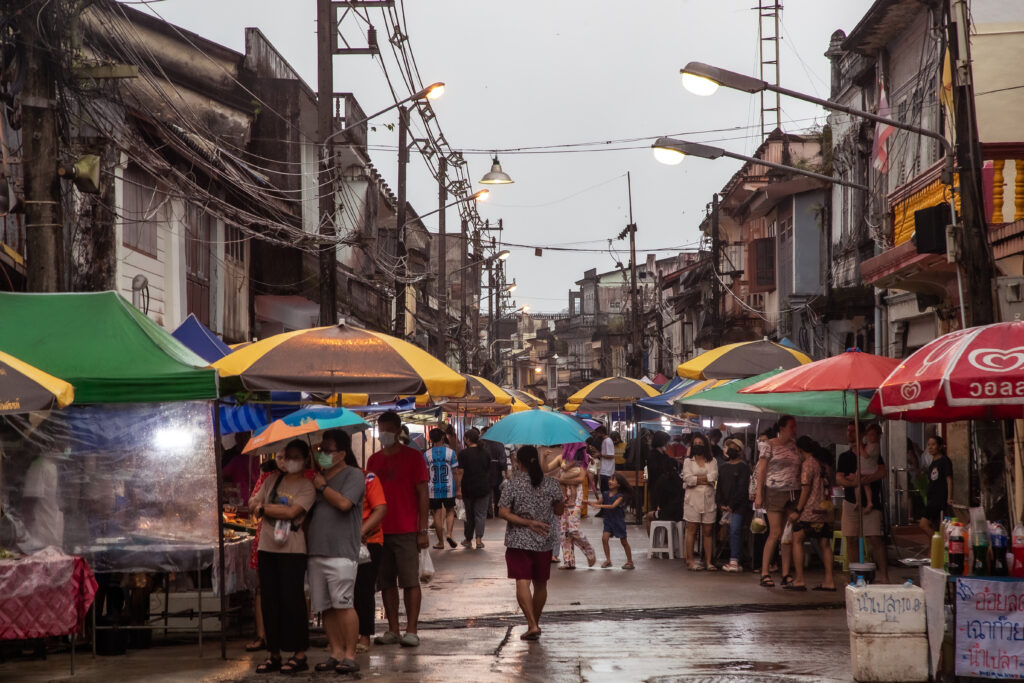
8 Jun, 2024
People I Meet: Real-life Stories from Grassroots Tourism Workers in Khao Lak
Khao Lak, Phang-nga Province, South Thailand — Tourism is all about people. But how often do we hear from the rank-and-file, blue collar employees who are supposed to be the main beneficiaries of tourism?
At the Thailand Travel Mart Plus in the beach resort of Khao Lak between 5-7 June 2024, I felt it was time to listen to their stories. So, in addition to the briefings from the Tourism Authority of Thailand executives and the interviews with buyers and sellers, I talked to a few of them.

Image: Courtesy of Tourism Authority of Thailand
Here is a brief summary of their grassroots musings below. Neither they nor their places of work will be named.
Buggy-driver: 45, he has been working with this hotel for 15 years. He hails from the northern Thai province of Nong Khai, on the border with Laos. Before moving south to Khao Lak, he did menial jobs in Bangkok but finds life in Khao Lak a lot more peaceful. His base salary is 10,000 baht but with tips and service charge, he has pulled in 40,000 baht in some months. In April, the hotel had a big incentive group, which boosted the service charge and netted him 50,000 baht. That would be equal to a junior management corporate executive in Bangkok.
Waitress: 37, Thai-Muslim working in the same hotel restaurant for 10 years. She was born in Phang-nga and survived the 2004 tsunami but lost many friends and family members. Since her father’s death, she is the sole breadwinner, supporting an ailing mother. Has a base salary of 15,000 baht a month but with tips and service charge, takes in about 50,000 baht a month. Last month, due to the same incentive group, she made 60,000 baht. She works five days a week, from 14.00 hrs to midnight. Stays in the hotel’s staff accommodation units. She is happy with her job and working conditions, which include food and board. Also avails of training programmes to help her improve her English. Unmarried, she had a boyfriend for three years but they split. She said the Phang-nga tourism sector is a good source of jobs for Thai-Muslims from the Southern Thai provinces.
Waitress: 32, has been working with this hotel for 13 months, her third job after graduation from a local technical institute. She is one of a family unit comprising of her grandmother, mother, aunt and a pet cat. Her parents divorced when she was three after her mother caught her father cheating. Her mother is in good health and runs a food-vending stall on the beach. The family survived the tsunami by fleeing up a small hill behind their home. She still vividly recalls the horrifying sight of the death and destruction from their safety spot. She enjoys her job and the opportunity to meet people and improve her English. She hopes to run her own business some day.
Key Takeaways
All the above interviewees survived Covid, thanks to personal savings, their company’s support and family help. Their jobs are the key to their survival. Today, in the midst of back-to-back global crises and instability, the job of every investor, CEO and decision-maker in both the private and public sectors is to ensure that these people continue to have one.
Personally and professionally, I found their stories deeply engrossing. They, too, enjoyed sharing them with a hotel guest who showed interest and empathy. Perhaps it is time to start inviting them to speak at industry events and conferences, instead of those dreadfully boring “visionaries, futurists and thought-leaders” and their rah-rah PowerPoints.
Travel & Tourism badly needs to move away from top-down, preaching-to-the-converted industry forums and towards more bottom-up perspectives.
I can promise many more such narratives in future dispatches.



Liked this article? Share it!